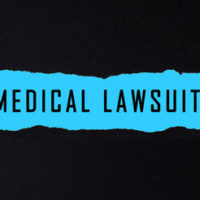Patients Must Be Honest to Win Medical Malpractice Suits

Undergoing any medical procedure is risky, no matter how benign it may appear, either by the patient or by his/her medical professionals. In many cases, the quality of medical care reduces this risk significantly. Thus, in the vast majority of medical procedures, the end result will be successful. However, in some cases, accidents will occur, and a patient may get injured. In these instances, retaining the services of an experienced Miami medical malpractice attorney can be essential to ensuring that the patient is able to receive reimbursement for the cost of recovering from his/her injuries. One aspect that must be addressed in all medical malpractice matters is whether, in spite of the error committed by the medical professional, the patient himself/herself was in any way responsible for the injuries he/she suffered.
Contributory Negligence
Medical malpractice matters are a specific form of negligence, with is the underlying legal theory used to sue for an injury. To be successful in a medical malpractice matter, an injured patient must prove each of the following elements:
- That the medical professional was subject to an established standard of care, specific to his/her specialty;
- That the medical professional failed to adhere to this standard of care;
- That the failure directly led to the patient’s injuries; and
- That the injuries can be quantified as damages.
Florida, however, follows a contributory negligence model. Under this legal theory, in negligence matters, the amount of fault attributable to the patient will reduce any amount awarded as damages. In other words, in each action for negligence, a determination is made as to whether the patient bears any responsibility for his/her injury. Although partial responsibility for the injury on the part of the patient will not bar his/her from recovering against the medical professional, the degree of the patient’s fault, expressed in terms of a percentage, equals the amount of damages that the patient will be barred from recovering. By way of example, if the medical professional is deemed to be 30 percent responsible for a medical malpractice injury, and the patient is deemed 70 percent responsible, the patient will only be permitted to recover 30 percent of the total damages stemming from the injury. Thus, if an injured patient is thinking of initiating a legal action for medical malpractice, he/she will need to consider how his/her own actions might affect his/her case.
Falsification
In States like Florida, which use contributory negligence, medical malpractice matters will focus on what occurred once the patient sought treatment for his/her problem or the injury at issue. In some cases, providing incorrect information, or acting improperly, may reduce recovery. Some of the more common examples in which a patient’s actions can reduce his/her recovery include:
-
Providing false information about the patient’s previous medical history, which may lead to an improper diagnosis. As an example, if a patient neglects to tell the medical professional of a history of a genetic disorder, then the medical professional will be unable to take this into account when diagnosing the current condition.
-
Ignoring a medical professional’s instructions. As an example, the failure to perform physical therapy, or to take medication at a prescribed time, may not allow for full recovery, or may deteriorate any potential recovery.
-
Fabricating the cause and nature of a patient’s injuries. In other words, failing to indicate that a patient is a chronic smoker will prevent the medical professional from making a correct diagnosis on a persistent cough.
-
Aggravating the health problem or injury, such as by rushing the recovery process, will not allow a properly-treated wound to heal.
Seek Legal Advice
If you have suffered an injury which you believe is the result of error on the part of an attending medical professional, contact the experienced personal injury attorneys at Pita Weber Del Prado as soon as possible. We have years of experience in medical malpractice matters, and will use this expertise to your advantage. After analyzing the circumstances of your injury, if we believe that your medical professional committed a preventable error, we will develop a strategy that can obtain for you the most compensation possible to recover from your injuries. Contact our Miami office today for an initial consultation.
Resource:
leg.state.fl.us/Statutes/index.cfm?App_mode=Display_Statute&Search_String=&URL=0700-0799/0766/Sections/0766.102.html
https://www.pwdlawfirm.com/the-evidence-you-need-to-prove-medical-malpractice/



